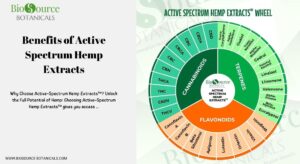What Nutritionists Say About Using Tea for PCOS Management
Polycystic Ovary Syndrome (PCOS) affects 1 in 10 women globally, and managing its symptoms can be challenging. While lifestyle and dietary changes are key, many nutritionists now point to one powerful addition to your daily routine — PCOS tea.
Packed with hormone-balancing herbs and anti-inflammatory ingredients, certain teas can help ease symptoms like bloating, irregular periods, and hormonal acne. But what do nutritionists actually say about using tea as part of a PCOS-friendly lifestyle?
Let’s find out.
Understanding PCOS and the Role of Natural Support
PCOS is a hormonal disorder that impacts ovulation, insulin response, and androgen levels. The symptoms often include:
- Irregular or absent menstrual cycles
- Acne or oily skin
- Unwanted facial hair
- Weight gain or difficulty losing weight
- Fertility issues
Conventional treatment options include birth control, insulin regulators, and anti-androgens. However, many women are now exploring natural options like PCOS tea, which nutritionists say may complement medical treatment and lifestyle changes.
What Exactly Is PCOS Tea?
PCOS tea is not one specific blend, but a category of herbal teas known to support hormonal balance. These teas typically include:
- Spearmint – known to help reduce androgens
- Cinnamon – supports insulin sensitivity
- Licorice root – helps with inflammation and adrenal support
- Chasteberry (Vitex) – may help regulate cycles
- Green tea – antioxidant-rich and metabolism-boosting
Many nutritionists recommend drinking these teas as part of a daily wellness routine, depending on your symptoms and sensitivity to herbal ingredients.
What Nutritionists Say About PCOS Tea
1. Helps Balance Hormones Naturally
According to certified nutritionists, certain herbal tea for PCOD — especially spearmint and chasteberry — may help reduce androgen levels and support menstrual regularity.
“Spearmint tea has shown promising results in studies that looked at hormone levels in women with PCOS,” says a registered dietitian specializing in women’s hormonal health.
Chasteberry is often used for cycle regulation, though it should be used cautiously and under guidance if you’re trying to conceive.
2. Supports Blood Sugar Regulation
Nutritionists often link insulin resistance to PCOS. That’s why ingredients like cinnamon and green tea are recommended for their blood sugar-stabilizing effects.
“Adding cinnamon tea can help reduce insulin spikes after meals, which is essential for managing PCOS,” says one clinical nutritionist.
Improving insulin sensitivity can reduce the risk of weight gain and support better hormonal balance overall.
3. Reduces Inflammation and Bloating
Chronic inflammation is common in PCOS. Anti-inflammatory herbs like licorice root, turmeric, and ginger are often part of advanced PCOS tea blends.
“Herbal teas are a gentle but effective way to manage inflammation without the side effects of over-the-counter medications,” says a naturopathic nutrition expert.
These ingredients may also help soothe digestive issues like bloating or constipation that many women with PCOS experience.
How to Add PCOS Tea to Your Daily Routine
Nutritionists suggest that consistency is key. Here are a few tips:
- Start with 1–2 cups per day, ideally in the morning and early evening
- Avoid adding too much sugar — try lemon or cinnamon for flavor
- Use organic, high-quality blends to avoid contaminants
- Pair your tea routine with a healthy, whole-food diet
- Always check with a healthcare provider, especially if you’re pregnant or taking medication
Common Questions About PCOS Tea
Can PCOS tea replace medication?
No, tea is considered a supportive tool, not a substitute. Always consult a doctor before stopping or starting any treatment.
How long until I see results?
Results vary. Some women notice improvements in symptoms like bloating and energy within 2–4 weeks, but hormonal changes may take longer.
Are there side effects?
Most herbal teas are gentle, but some may interfere with medications or cause mild reactions. Start slow and listen to your body.
Conclusion
Tea alone won’t cure PCOS, but many nutritionists agree that it can play a valuable role in symptom management. The best PCOS tea blends use targeted herbs that support hormonal balance, reduce inflammation, and help regulate insulin.
Whether you’re new to natural remedies or looking to enhance your current routine, adding a cup or two of herbal tea could be a small yet powerful step toward better balance.





